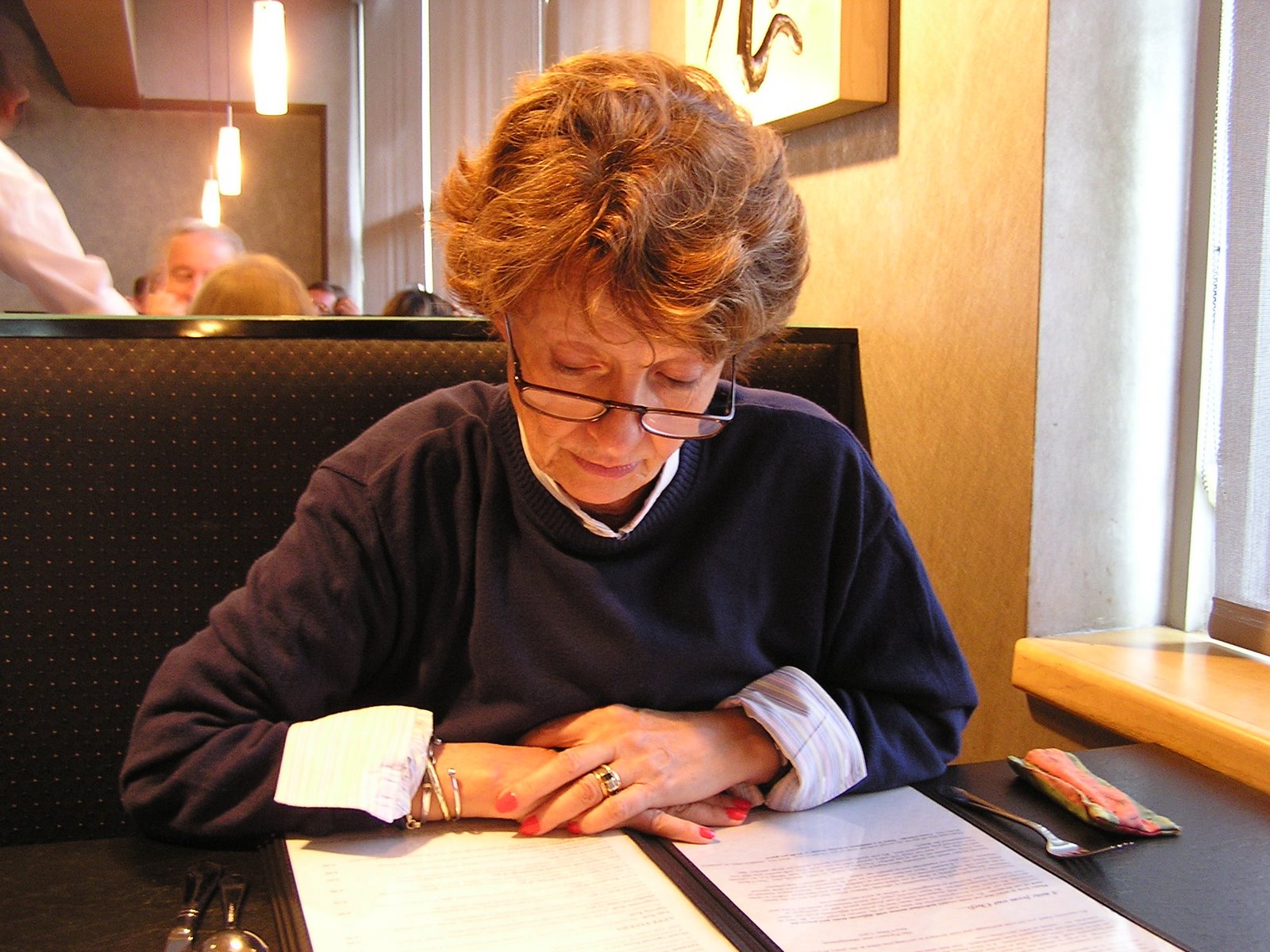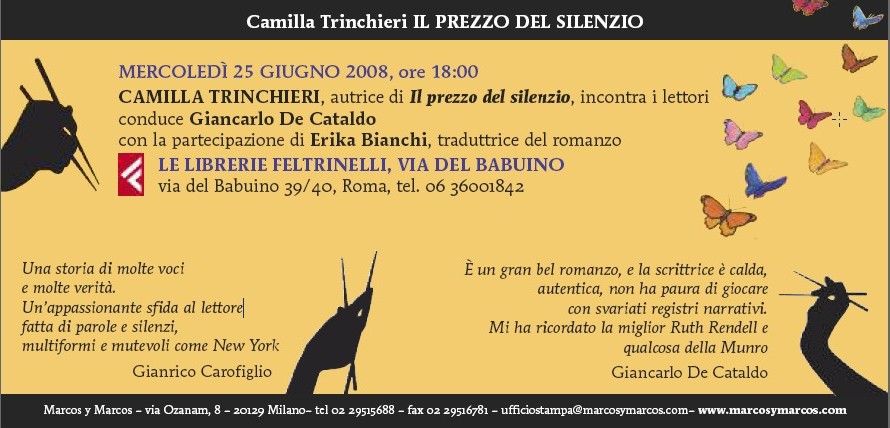Camilla Trinchieri writes:
I’m back! Still jet-lagged and overwhelmed by mail to go through, magazines to read, phone calls to make - the downside of traveling, but, oh, what a wonderful trip it was.
I spent three days in Rome seeing my nephews and old friends then I was off to Florence. My first challenge was facing four flights up a narrow, steep, uneven staircase to the tiny studio cum skylight I had rented. Thank God, trusty friend and translator Erika, who had picked me up at the train station, insisted on lugging my book heavy suitcase up those treacherous flights. During the two weeks I was there, as I went up and down those stairs several times a day I kept telling myself it was a good exercise that would slough off the wine, the pasta, the beans, the salami and again the wine I was consuming with joyous vigor every day. My muscles ached, but I felt virtuous.
The first day, a Monday, I had an easy class at the Institute at Palazzo Rucellai with four junior-year-abroad American women, who were advanced Italian language students: Lauren, Leslie, Emily and Rebecca, all of them eager, interested, and intelligent. Lucky me. I say 'easy class' because we discussed the Italian version of
The Price of Silence and their enthusiasm was heart warming. That evening I gave a talk at Kent State University Florence, which I called "A Journey into Fiction Writing." I talked about how I got into writing, interspersed with quotes and vignettes about writing I’d culled from other writer’s writings. It was the first time I had spoken in an academic setting and had been nervous about it for weeks before, but I was able to relax a little when Maria Nella, a good friend who lives in Lucca, showed up with flowers, orange Gerbera daisies that lasted the full two weeks of my stay. It was to her smiling, encouraging face that I addressed for most of my talk.
Erika, who is a professor of Classics at Kent State Florence, gave me a great introduction which also helped. Well, I got through it without too many flubs and stutters, and at the end offered the audience chocolates because I truly believe that
reading and writing are food for the mind and the soul. Bread would have worked better as a metaphor, but Tuscan bread is unsalted and begs for a thick slice of prosciutto or cheese which would require plates, napkins and something to help the bread go down. Too complicated. Chocolates would have to do.
Once the first day jitters were gone, I easily got into the routine of the five minute walk in the morning to a caffe’ near the Ponte Vecchio for a cappuccino and a mini sandwich which I ate sitting on a stool looking out at the Arno and the Uffizi Museum on the other shore. Then a fifteen-minute walk to the school, a quick check of my e-mails in the faculty lounge, a chit chat with the administrators and then class. In the days and hours between classes, Erika walked me through the center of her city. We talked, we laughed, we went to see the restored Madonna del Cardellino by Raphael at the Palazzo Medici Riccardi, so beautiful and serene a painting you want to sit at its feet for hours and forget about the terrors of the world outside.
We ate. We drank. We had coffee.
In the Cappella Brancacci Masolino brought me right back to suffering with his psychologically acute vision of Eve and Adam’s pain as God expels them from the Garden. We ate and we drank some more.
In the following days I got to meet and teach three more wonderful students: Janie, Cassandra, and Amy. I left the students my e-mail address and hope some of them will write. And I feel I have two new friends, Elena and Serena, the Italian teachers who helped me in class.
I missed out on one new friend: the resident ghost, Bianca, a 16th or 17th century (no one is sure of the dates) young woman who is believed to have committed suicide on the eve of her wedding by throwing herself out of a window of the palazzo. I sat quietly in the room some believe is hers and waited. If she was there she watched me in silence.
I want to write about Bianca. A young woman who kills herself –was she in love with someone else, was her husband-to-be a cruel man? What was she afraid of? Whatever the reason for taking her life, if she is still wandering through her home, what must she think of the students in the 21st century, midriffs bare, rings in their noses, nuzzling each other in the corners, laughing, sleeping through class, free to choose their lives. I’ll try to ask her next time.
Yes, I’ve been invited back. I’ll teach again in March.
As for those stairs to the studio? They didn’t do my waistline a bit of good, but I had a fabulous time.
 Camilla writes:
Camilla writes:













